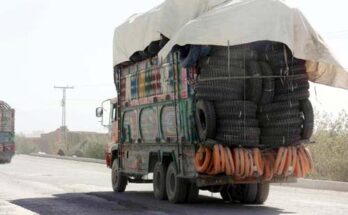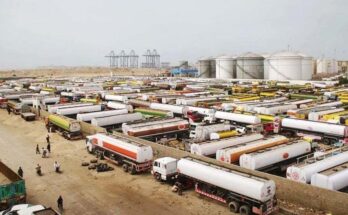Pakistan’s oil supply chain— from import to refineries and from marketing firms to the pipeline transport network, is in complete collapse due to the growing volume of petroleum product smuggling.
With a massive drop in registered sales, the country’s oil industry has sought emergent action from the prime minister and other state agencies to stop the smuggling of petroleum products that they claim is not only threatening their survival but is estimated to be causing over Rs120 billion in direct annual revenue loss to the government at the rate of about $36 million per month.
Three major petroleum market stakeholders — Oil Companies Advisory Council (OCAC), 22-member Oil Marketing Companies of Pakistan (OMAP), and Pak-Arab Pipeline Company Ltd (PAPCO) that transport various products through pipelines — have separately approached the federal government with unprecedented foul play in petroleum trading and sales.
Related: Diesel Smuggling Badly Denting the Economy
In an urgent communication to the government, Adil Khattak, the Chairman of the 39-member OCAC representing all the local refineries and larger marketing companies said it was a “pressing issue that posed a severe threat to the oil industry, and consequently jeopardized the stability of government revenue streams”, adding that the staggering influx of 4,000 tonnes of smuggled fuel daily into Pakistan, as confirmed by the Oil and Gas Regulatory Authority (OGRA), was bleeding the nation of approximately $35.6m per month. “This national crisis demands swift and aggressive action.” The sales trend of petrol and high-speed diesel (HSD) during 2022-23 starkly resembled the figures recorded during the tumultuous pandemic period in 2019-20, the OCAC chief said.
While the GDP growth of 6.11% in FY22 to a contraction of 0.3% in FY23 may partly explain this downturn, unfortunately, the year-to-date sales of petrol and HSD have further plummeted by approximately 6.5% in July-February 2023-24 when compared to FY23, casting doubts on the integrity of projected GDP growth rate of 1.7% for FY24.
Similarly, the month-to-date sales figures for petrol and HSD in March exhibit an alarming 12% and 21% decline, respectively. Such high negative variances signify product glut, lower refinery throughput, choking of White Oil Pipeline (WOP), and restrained sales volumes. Based on this, Mr Khattack said the illicit trade had disrupted the entire supply chain of petroleum products, adversely affecting the refinery health, WOP operations, and the profitability of OMCs.
Related: Oil Consumption Shrunk to the Lowest Ever Mark
The unchecked proliferation of substandard smuggled petroleum products not only drains the government revenue but also fuels a shadow economy, making it increasingly challenging to monitor and regulate illicit activities, says the OCAC chairman, who also leads Rawalpindi-based Attock Refinery besides other Attock Group companies.
OMAP Chairman Tariq Wazir Ali also said the smuggling of Iranian petroleum products into Pakistan inflicted severe damage on the country’s economy and unjustly impacted OMCs operating within the legal framework, dutifully paying taxes and duties. He demanded, “swift and decisive actions to eradicate this smuggling, reinforcing the rule of law and safeguarding the interests of legitimate businesses that play a vital role in Pakistan’s economic development”.
PAPCO Chief Amr Ahmed said against a guaranteed 45% throughput, the utilization has struggled at 34% so far. The government should ensure “to achieve 900,000 tonnes of petrol input into WOP between now and end-June 2024” to yield an annualized 45% mark.
Source: Dawn

Responsible for delivering local & international automotive news.




